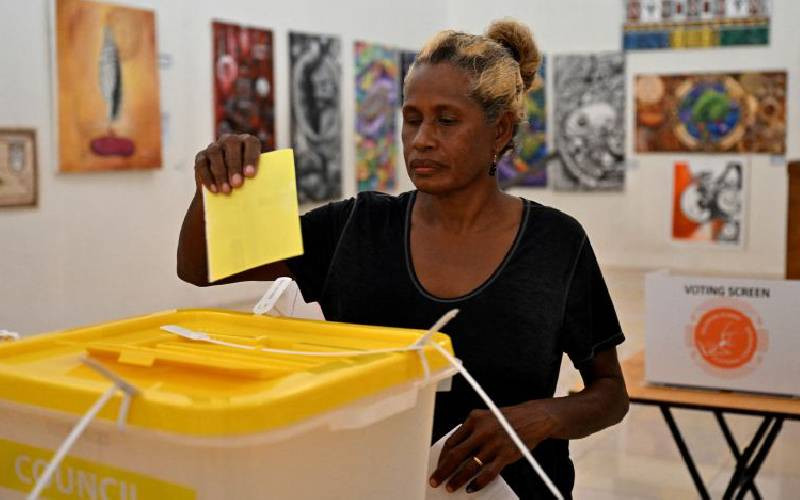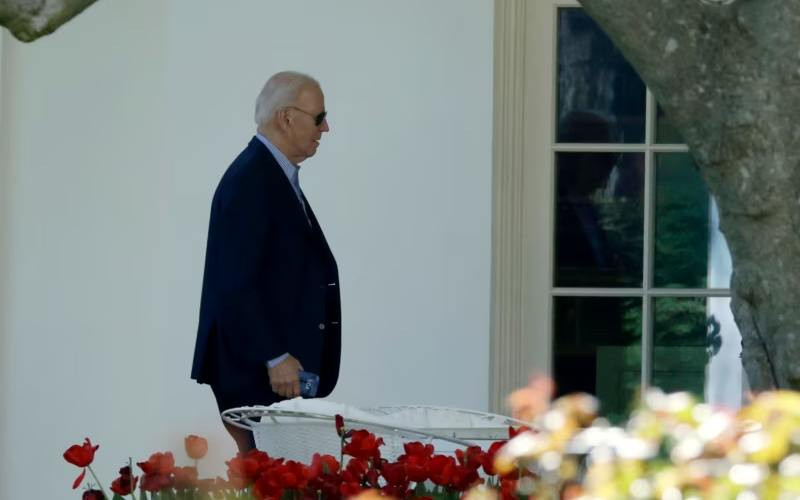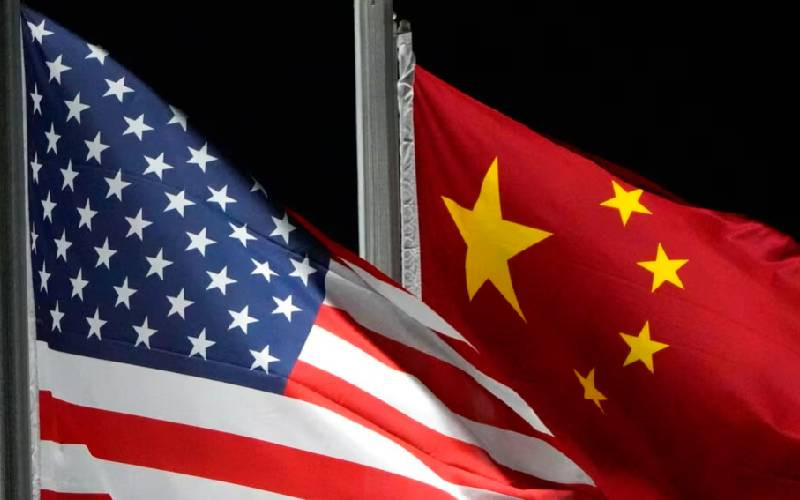Washington accused Beijing on Wednesday of seeking to spy on its researchers dedicated to the fight against the new coronavirus, whose macabre toll is approaching the threshold of 300,000 victims worldwide.
The United States continues to blame China for the severity of the crisis, which, beyond its terrible human toll (4.3 million cases, more than 295,000 dead), has put entire sections of the world to sleep. the economy.
The World Health Organization warned on Wednesday that the virus could "never go away" and become one of those with which humanity must learn to live.
In the meantime, in an attempt to revive tourism, one of the most affected sectors, the European Union has called on its members to reopen their internal borders. This did not prevent the markets from collapsing, after somewhat reassuring words from the American monetary authorities.
The head of the American Central Bank, Jerome Powell, warned that the damage of the pandemic on the first world economy could be "lasting" and that it would be necessary new aid, in addition to the approximately 2.900 billion dollars of support already unlocked.
In the United States, the country most affected with still more than 1,800 deaths in 24 hours Wednesday (more than 84,000 in total), even the health sector is paradoxically affected by the crisis: almost a million and a half people there lost their jobs since March, including 135,000 in hospitals, which saw their incomes cut by the postponement of non-urgent interventions.
This sector, but also those of pharmacy and research, are "targeted" by China, which, via hackers, students or researchers, try to steal their work on a vaccine, treatments or new screening tests, accused the United States.
Before Washington publicly launched these attacks, the press had echoed them, and Beijing had previously denounced "rumors and slanders".
"Dark winter"
For weeks, President Donald Trump has accused China of having concealed the scale of the epidemic, which appeared in late 2019 in the city of Wuhan, and thus of having facilitated its spread. He even - vaguely - threatened her with reprisals.
But according to a former senior health official fired recently by the president, the United States was not "prepared" enough to deal with the virus. Without a coordinated response, there will be an "upsurge of cases in the fall" and "2020 will be the darkest winter in modern history," Rick Bright also predicted.
In the United States, as in the rest of the world, governments are trying to find the difficult balance between measures to halt the spread of the disease and decisions to revive their economies.
The reopening of borders is one of the challenges of this debate.
The European Commission on Wednesday wanted a "concerted" and "non-discriminatory" reopening of the EU's internal borders in order to prevent the sinking of the tourism sector, which represents 10% of GDP and 12% of jobs in the Union.
"If we all make an effort, we will not have to spend the summer stranded at home or the summer will not be completely lost for the tourism industry," said Commission Executive Vice-President Margrethe. Vestager.
Stay informed. Subscribe to our newsletter
Germany announced on Wednesday that it was aiming to lift traffic restrictions at its borders in mid-June, and said it shared this goal with its French, Austrian and Swiss neighbors.
"So enthusiastic"
For the rest, the deconfinement measures continue to advance step by step, with sometimes, here or there, a pause or a careful retreat.
Regarding advances, the German football championship will resume on Saturday, and its English, Spanish and Italian competitors are preparing to imitate it.
Banned for six weeks, the beaches around Los Angeles, California, have reopened without being allowed to drop their towel or play a volleyball match.
The United Kingdom, the second most bereaved country in the world (more than 33,000 dead), has lifted its foot slightly on England alone, where it is again possible to go to work, sunbathe or play golf.
"I have the impression of being a school director who sees a lot of schoolchildren arriving, everyone is so enthusiastic", testified to AFP Jason Pheasant, general manager of a golf club in the south west of england.
Although Russia became Tuesday, according to an AFP count, the second most contaminated country in the world (more than 242,000 cases), President Vladimir Putin, whose spokesman and Prime Minister were hospitalized, given the green light to begin deconfinement, depending on the epidemiological situation in each region.
Mortality remains low compared to other countries, with 2,212 officially registered victims, a toll that critical voices question.
But Moscow, the main focus of the epidemic, extended its confinement until May 31.
Walks are again authorized on Wednesday on certain beaches of the Atlantic coast in France, where the sanctuary of Lourdes (South-West) will welcome visitors again from Saturday.
In the rest of the world, the South African president has announced a new stage in getting the country back on track by the end of the month.
Unexplained deaths in Nigeria
Conversely, the American capital Washington, where the pandemic is slow to recede, has extended the confinement of its population until June 8 and the Chilean authorities have reinstated this measure in Santiago, where cases have increased by 60% in 24 hours.
In China, the vast agglomeration of Jilin, in the eponymous province bordering North Korea, placed its residents on Wednesday in partial containment after new cases of coronavirus raising fears of a second epidemic wave in the country.
By mobilizing scarce resources and disrupting failing health systems, the fight against the virus could also have devastating indirect effects in poor countries, such as the death of 6,000 children every day in the next six months, warned Wednesday Unicef.
Africa has so far been relatively unscathed by the pandemic, which has officially left less than 2,500 dead, but there are increasing indications that this toll is greatly underestimated.
The consequent increase in mostly unexplained deaths in northern Nigeria, the most populous country in Africa, raises fears of a strong spread of the coronavirus in this region among the poorest in the world.
"They are not aware of the earthquake that is looming," warns Dr Ibrahim Musa, a doctor in the region.
 The Standard Group Plc is a
multi-media organization with investments in media platforms spanning newspaper
print operations, television, radio broadcasting, digital and online services. The
Standard Group is recognized as a leading multi-media house in Kenya with a key
influence in matters of national and international interest.
The Standard Group Plc is a
multi-media organization with investments in media platforms spanning newspaper
print operations, television, radio broadcasting, digital and online services. The
Standard Group is recognized as a leading multi-media house in Kenya with a key
influence in matters of national and international interest.
 The Standard Group Plc is a
multi-media organization with investments in media platforms spanning newspaper
print operations, television, radio broadcasting, digital and online services. The
Standard Group is recognized as a leading multi-media house in Kenya with a key
influence in matters of national and international interest.
The Standard Group Plc is a
multi-media organization with investments in media platforms spanning newspaper
print operations, television, radio broadcasting, digital and online services. The
Standard Group is recognized as a leading multi-media house in Kenya with a key
influence in matters of national and international interest.








